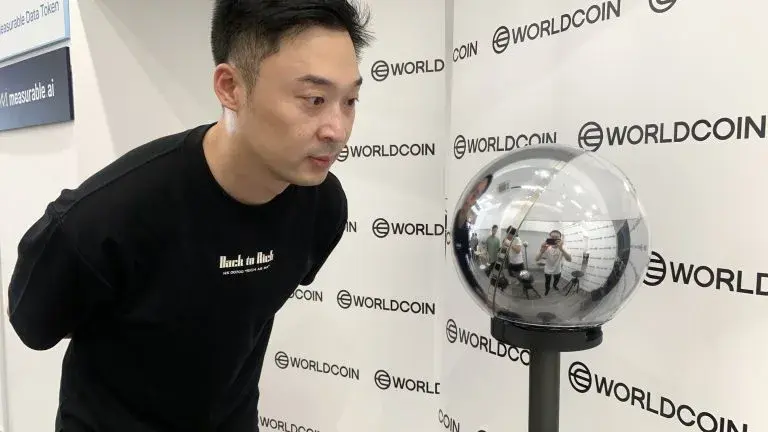Reporters visited booths of Worldcoin, a global blockchain project championed by OpenAI CEO Sam Altman, in Nairobi, Bengaluru, and Hong Kong to get a better sense of who was signing up for the service and why. In all three cities, the surge of interest for registering their biometrics to the blockchain was driven primarily by the sign-up bonuses. Relatively few people were familiar with the goals of the project.
Wow that is dystopian, combined with idiocy. What a scary combination.
It’s not necessarily idiocy. Dystopian, yes. And when you consider that the case for it not being idiocy is a government that has created such wealth inequality that people will do this for an extra $50.
Valid point, that’s what makes it even more dystopian. The most in your face example of “you have to be able to afford privacy”.
I agree with what you say about inequality and get your point, though I am not sure whether exactly these individuals were in urgent need of extra 50 bucks. A major point here is information and education here (or, better, the lack of it).
purchasing power parity. $50 USD can get much more in one of these countries than in the USA
There are worse ways to earn a week’s worth of food for one person.
I’m more interested in learning about who is paying the 25 WLD, how they have funded that, and how they plan to generate a return on the investment. There is already an upfront investment involved in developing the token, the “orb”, and the uses of the data, so what is the business model that generates revenue for them?
who is paying the 25 WLD
The WLD is a cryptocurrency, anyone can create one, no funding needed, and it takes $0 to create as many WLD units as you want. The founders of the whole ORB thing have created it. Obviously, that crypto currency will start being worth $0, but… with the right marketing… you can convince other people to pay more than $0 in exchange for your newly created WLD.
how they have funded that
All they needed is the initial $0 (I have that, everyone has that), and some funding for the marketing… from people who expect to convince others to pay for WLD. A nice looking plan, talking to people with money, convincing them to risk some on it as early investors in “something that will become huge”.
Right now, their marketing has convinced some people to pay about $2 for each WLD. As they keep marketing it more, the moon is the limit, whatever someone somewhere in the world is willing to pay for one WLD, that’s what it’s going to be worth, even if it’s $1M per WLD. If nobody wants to pay a dime… well, back to $0 it goes. Obviously, anyone holding WLD coin, is experting for the former to happen, not the latter… but it wouldn’t be the first time when a cryptocurrency has gone to $0 either. YMMV (wildly).
how they plan to generate a return on the investment
what is the business model
Two-fold:
Standard market mechanics: buy low, sell high. The first people to buy the most WLD at $0.10 each, will be the ones getting the most return if they manage to sell them at $100K each.
Charging for the authentication service. Not the people getting scanned (although that would be a nice bonus, “pay monthly so others can authenticate you”), but the companies wanting to authenticate people. That begins with banks, which are bound by law to authenticate users, and goes all the way to insurance companies, advertisers, or Lemmy instances (think 2FA) and pretty much everyone with a service out there who needs to authenticate users.
More important though, are the risks:
You only get 25 WLD once, for life. Better think well what you do with them, in case you need to use some in the future for whatever reason, and have to buy some at whatever price they will be then (if it gets adoption, WLD could become really worthy/expensive).
If you agree for them to save your biometric data (🚩🚩🚩), then any data leak, or them at some point deciding to sell it themselves, can have really bad consequences. The whole talk about “not being linked to your real ID”, goes out the window the moment you use their ID service for anything linked to your real ID.
Wouldn’t it be easier to just make something of value than to pretend a piece of information that anyone can replicate is valuable?
This is like me making a lemmy instance at this point and trying to sell accounts. Like… why not just make an actual thing and sell that if you’re going through the effort of convincing people that something worthless isn’t?
Or like, I don’t know, find a better con?
I get speculating on cryptocurrency a few years ago when it was spiking all over the place and there was a ton of hype about several different coins, but it’s so saturated now that I don’t see the point.
But I also would rather put my life into enjoying and creating art than chasing dollar signs, so maybe that’s more about me than anything.
a piece of information that anyone can replicate
Not sure what you mean by that. If you’re thinking of NFTs linking to GIFs, this isn’t it.
a few years ago […] a ton of hype about several different coins, but it’s so saturated now that I don’t see the point
Almost all of those “coins” from a few years ago, were scams to get people’s money and run with it. They’re not saturating anything, they’re just gone.
And if you’re into art over money… beware. All this Orb stuff is being sold as a way to tell “human” from “AI” generated art, independently of the dollars. That’s the mindset this project/scam is targeting.
Last year the MIT Technology Review published an extensive research report. It’s a very long read but it’s worth the time if I may say so.
Our [MIT] investigation revealed wide gaps between Worldcoin’s public messaging, which focused on protecting privacy, and what users experienced. We found that the company’s representatives used deceptive marketing practices, collected more personal data than it acknowledged, and failed to obtain meaningful informed consent. These practices may violate the European Union’s General Data Protection Regulations (GDPR)—a likelihood that the company’s own data consent policy acknowledged and asked users to accept—as well as local laws. […]
Pete Howson, a senior lecturer at Northumbria University who researches cryptocurrency in international development, categorizes Worldcoin’s actions as a sort of crypto-colonialism, where “blockchain and cryptocurrency experiments are being imposed on vulnerable communities essentially because…these people can’t push back,” he told MIT Technology Review in an email.
Oh wow. It gets worse with every sentence. “Crypto-colonialism” has to be the most terrifying new term ive learned this week.
$50 in india is huge.
In the meantime, the Kenyan government has ordered cryptocurrency project Worldcoin to stop signing up new users, citing data privacy concerns.
The ministry of the interior has launched an investigation into Worldcoin and called on security services and data protection agencies to establish its authenticity and legality.








